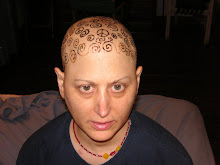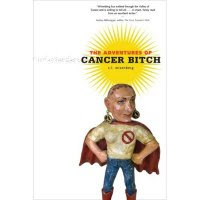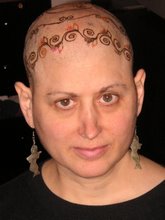I went to the concert hall at Well-Regarded University last night to hear Peter Gay (see yesterday's post). It was near starting time and I squeezed my way down an aisle close in where there was just one seat. I sat next to a woman with straight gray hair, jowels and a prominent lower lip. She looked to be in her late 70s or older. She was wearing a hat (I notice hats a lot more than I used to) that was beige, cloche-like, with a chain above the brim. I almost asked her where she got it. Gay's topic was Guenther Grass' disclosure that he had served as a volunteer in the Waffen-SS as a young man at the end of the war. The woman said she doubted that most of the audience had read Grass. We were talking when the lights dimmed. Her husband shushed us. He's German, she said in explanation. German Jewish, she added, in case that wasn't clear. Are you Polish? I asked. She nodded. She was a survivor. I didn't get details. It was an odd topic for a hybrid audience for a talk sponsored by the university as well as Jewish community. The audience was mostly white-haired, with some professors in front and students in the balcony. Gay talked about Grass' disclosure and reaction to it. That was it. Some people couldn't hear well. He was white-haired, too, walked up to the podium with a walker, but stood as he spoke. I wondered if it was a good thing that people were riled up about his military service. What would it mean if there were no reaction to it? Would it mean that history, Germany history, fascist history, world history didn't matter?
My general sense afterward was that the audience was disappointed. The woman next to me gave off the feeling: I was there in the Holocaust, was this valuable for me to hear? It reminded me of a conversation I overheard in Caen, France, about seven summers ago, at the bus stop across the street from Le Mémorial de Caen, a big museum devoted to World War II. A young man asked an older woman if she'd visited the museum, which was built in 1988. It seemed like they were strangers, and both residents of the town. No, she said, I don't have to. I lived through it.
My friend D, in town for the day, drove me to campus and picked me up. He stayed around for the reception. He walked behind me and commented on the stare-avert reaction of people to my Mohawk. I hadn't noticed.
After the talk I told Peter Gay about my encounter on the L (see yesterday) and gave him a copy of my book about Holocaust and memory. I'd emailed the professor who introduced him (along with other people on campus) to alert them of my new hair-do. I don't think he got to the message and he didn't recognize me.
All that seems so trivial. The important thing is that I don't know how I would have reacted if I'd had Cho Seung-Hui in a creative writing class. Nikki Giovanni did. He was silent, hiding behind sunglasses and a hat, turning in "tirade"s, and taking photos of women students' legs during class. "There was no writing. I wasn’t teaching him anything, and he didn’t want to learn anything,” she told the Associated Press. Female students stopped coming to class. So she wrote to the department chair, who took him on for private sessions. The dean's office and campus police said they couldn't do anything because he hadn't made threats.
And then the semester ended.
I taught a seminar in teaching writing last fall. We discussed an essay about students who write about trauma. The author of the essay criticizes herself for going too far with one student, in having her return to the scene of the event, basically, to rub her nose in it. My students said they would have felt their privacy was violated they'd written about suicide in a creative writing workshop and teacher had taughted to them about it. But there's violence--toward self or others--in writing, and there's anti-social, aggressive, disruptive behavior in class. Two different things. When I taught at an art school downtown, I had a few first-year students who wrote about suicide. I remember talking to at least one of them. I wrote on her paper that she might want to see one of the school psychologists and I also talked to her. I talked to one of the school psychologists, too, who told me she couldn't tell me whether the student had seen her. The student herself later told me she had. And that was it.
But she wasn't disrupting the class. She wasn't writing violent, offensive work, which Cho did in another Virginia Tech writing class. What do you do? An expert of some kind on NPR today said that we were seeing the limit of what could be done by the university (and society at large, I think he was saying), that no more could be done, that we all want to live in an orderly world and we can't make it that way.
Is that all?
skip to main |
skip to sidebar


taramosalata & other dips; photo by Vera Szabó

cream puffs, caprese; photo by Vera Szabó

Don't try this at home. Uh, oh, we did.

L the Haircutter in Background

Finished.

design by Jennifer Berman

At medicinal baths, with testimonials from patients
One Feminist's Report on Her Breast Cancer, Beginning with Semi-diagnosis and Continuing Beyond Chemo, w/ a side of polycythemia thrown in **You don't have to be Jewish to love Levy's rye bread, and you don't have to have cancer to read Cancer Bitch *** Cancer Bitch comes to you from S.L. (Sandi) Wisenberg in Chicago
Click on photo for Cancer Bitch reading/lecture schedule
Blog Archive
-
▼
2007
(192)
-
▼
April
(23)
- Cancer Bitch Behaves Badly Again
- Remembrance of Things Past or: Everybody's Got a W...
- A Cancer Bitch Behaving Badly
- Freedom and Development
- Notes on the Visible/Invisible
- Cancer is Boring
- Head Covering
- Men with Guns 2
- Men with Guns
- When It Falls, It Falls
- The End of Women and Children First???
- Briefly
- Hair is a Woman's Crowning Glory
- The Government Knows Much
- The Neighborhood Internist & An Embarrassment of G...
- The Neighborhood Acupuncturist
- The Forgetting of Elvin Hayes & Education in Nicar...
- Passover--First Day--Hasids
- The Fifth Question
- Go, Cancer Bitch, Go
- My Most Useful Teaching Moment
- El Repliegue
- Two Miles
-
▼
April
(23)
Cancer Bitch recommends these links:
- Alternet.org
- As the Tumor Turns
- Being Cancer--its on-line book club discusssed my book.
- Big Grrls DO Cry: queer life meets precarious life
- Black Gyrl Cancer Slayer
- Breast Cancer Action
- breastcancer.org
- Chemo Chicks
- Chronic (Illness) Babe
- Code Pink women's peace group
- Collaborative on Health and the Environment
- Colon cancer cowgirl
- Earth Henna
- Friends of Cancer Bitch on Facebook
- Funny Cancer shirts and mugs
- Gayle Sulik, Pink Ribbon Blues
- Geezer Sisters (tho' only written by one of them)
- Get Real About Breast Cancer (w/ pic of Breast Cancer Barbie)
- Gilda's Club
- Goodbye to Boobs (by a pre-vivor)
- Humerus Cartoons
- I got the cancer (lymphoma)
- Mamawhelming
- Organic Consumers Assn.
- Our Bodies, Our Blog
- Paula Kamen
- Planet Cancer
- Recovery on Water
- S.L. Wisenberg/Red Fish Studio
- Skin Deep: un/safe cosmetic list
- Stacey Richter's Land of Pain
- Swimming in the Trees: author Jessica Handler of Atlanta
- Tara Ison
- Terry Tempest Williams
- The Assertive Cancer Patient
- The Cancer Culture Chronicles
- The Fifty-Foot Blogger, another denizen of Fancy Hospital
- Whirled News--better than the Onion
- Women & Children First bookstore
NOTATE BENE
Everything here is as accurate as I could make it. Occasionally I've changed identifying details when writing about others.
Links to audio and video

from my Farewell to My Left Breast party

taramosalata & other dips; photo by Vera Szabó
Farewell to My Left Breast Party

cream puffs, caprese; photo by Vera Szabó
April 12, 2007--The Making of the Mohawk

Don't try this at home. Uh, oh, we did.
The Mohawk Profile

L the Haircutter in Background
The Mohawk Demure

Finished.
Summer henna-wear
design by Jennifer Berman
Life after cancer, Budapest, July 2009
At medicinal baths, with testimonials from patients


